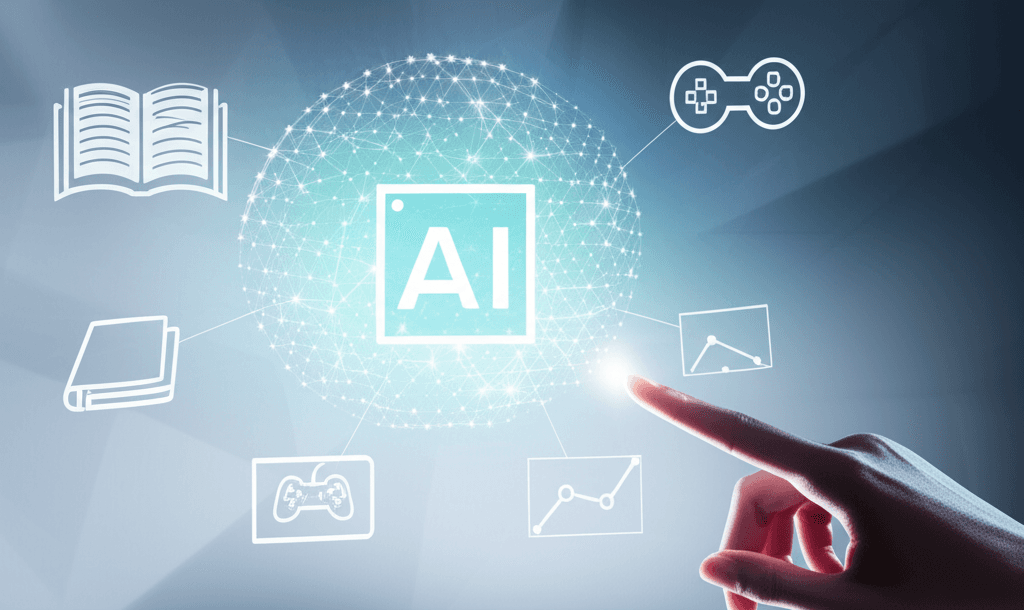Claude unlocks in-platform AI app creation, empowering every user.
Claude transforms into an AI app builder, empowering anyone to create and share custom tools directly, no coding required.
June 26, 2025

Anthropic has significantly enhanced its Claude AI, introducing a feature that allows users to build, host, and share their own AI-powered applications directly within the Claude interface.[1][2] This move signals a major shift for AI platforms, evolving them from conversational tools into comprehensive creation environments.[2] The new capability, currently in beta, empowers both developers and non-technical users to translate ideas into functional, interactive apps simply by describing what they want to create.[3][2] This democratization of AI development lowers the barrier to entry, potentially accelerating innovation across numerous sectors by removing the need for specialized coding skills or complex deployment processes.[1][2]
At the core of this new functionality is an expansion of Claude's "Artifacts" feature.[3] Initially, Artifacts provided a dedicated space where Claude could generate content like code snippets, documents, or designs in a separate window, allowing users to watch and guide the creation process in real-time.[3][4] The recent update embeds Claude's intelligence directly into these Artifacts, transforming them from static outputs into dynamic applications.[5] These newly created apps can now interact with the Claude API, enabling them to generate new content and perform tasks.[6][3] For example, where a user could previously ask Claude to create a list of flashcards, they can now ask it to build a flashcard *app* that allows any user to generate their own cards on any topic.[5] This is made possible through a new `window.claude.complete()` method that allows the JavaScript code within an Artifact to send prompts to the Claude API.[6]
A key aspect of this launch is its innovative approach to handling costs and accessibility.[1] When a user shares an app they've created, anyone with a Claude account can use it.[7] The API usage generated by the app is billed against the end-user's subscription plan, not the creator's.[1][7] This model removes a significant financial barrier for creators, who no longer need to worry about managing API keys or the costs associated with scaling their app for a larger audience.[1][7] The system is designed to be seamless, with end-users authenticating through their existing Claude accounts.[1] This approach is available across all of Claude's tiers, including the free version, though usage limits will vary depending on the user's subscription level.[5][8] Early users have already leveraged this capability to build a range of applications, including AI-powered games with adaptive NPCs, personalized learning tools, and data analysis apps.[1]
The introduction of in-platform app creation places Anthropic in direct competition with similar offerings from other major AI labs, most notably OpenAI's GPTs. While both platforms allow for the creation of customized AI agents, their approaches differ.[9] OpenAI's GPT Store provides a marketplace for users to share their custom GPTs, and offers extensive flexibility through plugin integrations.[9][10] Anthropic's approach, by contrast, is currently more focused on providing a structured, integrated environment within the Claude ecosystem itself, simplifying the process from idea to shareable app without external deployment.[1][9] Anthropic's "tool use" functionality, which underpins the app creation feature, allows Claude models to interact with external APIs and data sources, a capability crucial for building sophisticated applications that can perform real-world tasks.[11][12] This is further enhanced by features in the Anthropic Developer Console, which provides tools for generating, testing, and evaluating prompts to improve application quality.[13][14] This move is part of a broader industry trend toward no-code and low-code development, which is predicted to encompass a large percentage of new application development in the coming years.[8]
In conclusion, Anthropic's decision to allow users to build and share AI applications directly within Claude represents a significant step toward making AI development more accessible and integrated. By handling the complexities of hosting, authentication, and usage costs, Anthropic is fostering an environment where creativity and utility are prioritized.[1][7] This feature not only empowers a new wave of citizen developers to create custom AI tools for education, business, and entertainment but also intensifies the competitive landscape for AI platforms, pushing them to become not just sources of information, but true engines of creation.[2][8] As these capabilities mature, the distinction between using an AI and building with an AI will continue to blur, heralding a future where personalized software is readily creatable by everyone.
Sources
[3]
[4]
[8]
[9]
[10]
[11]
[12]
[13]
[14]